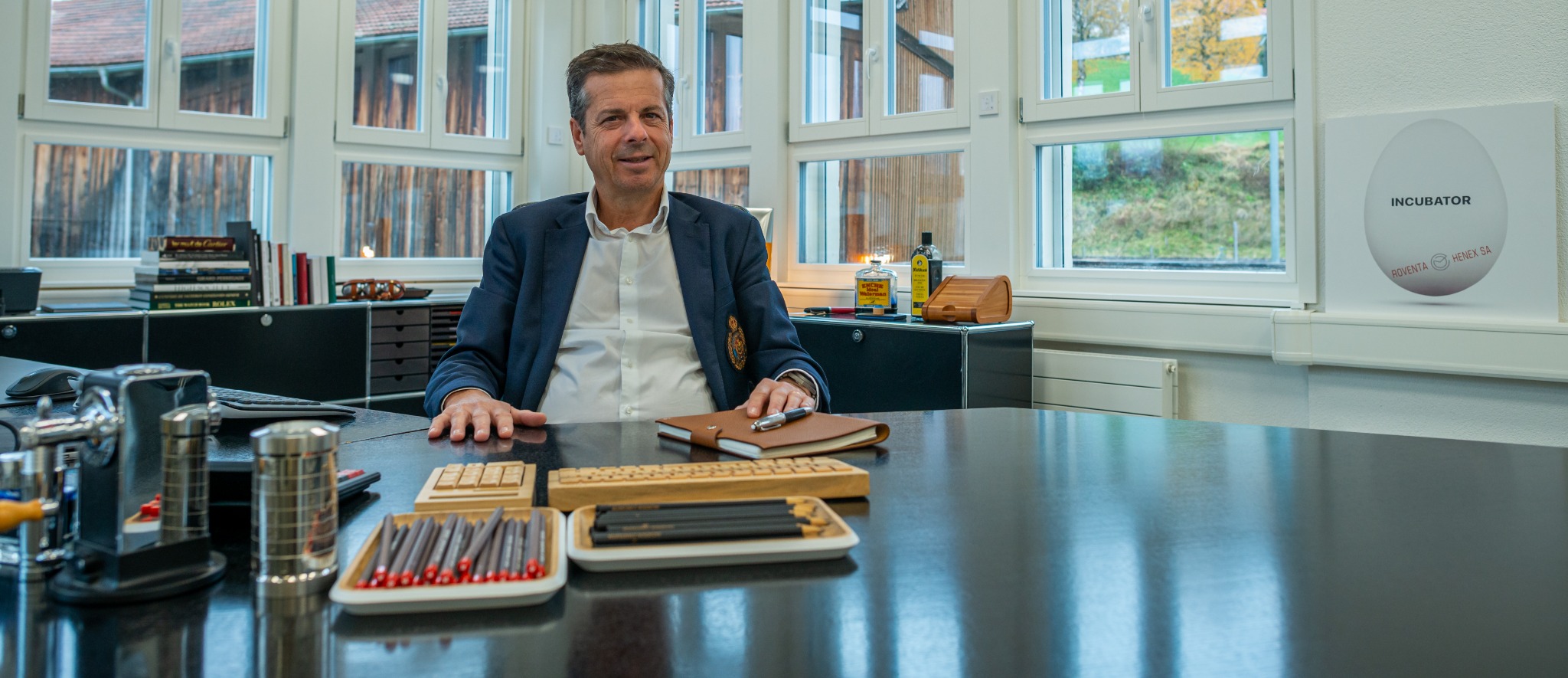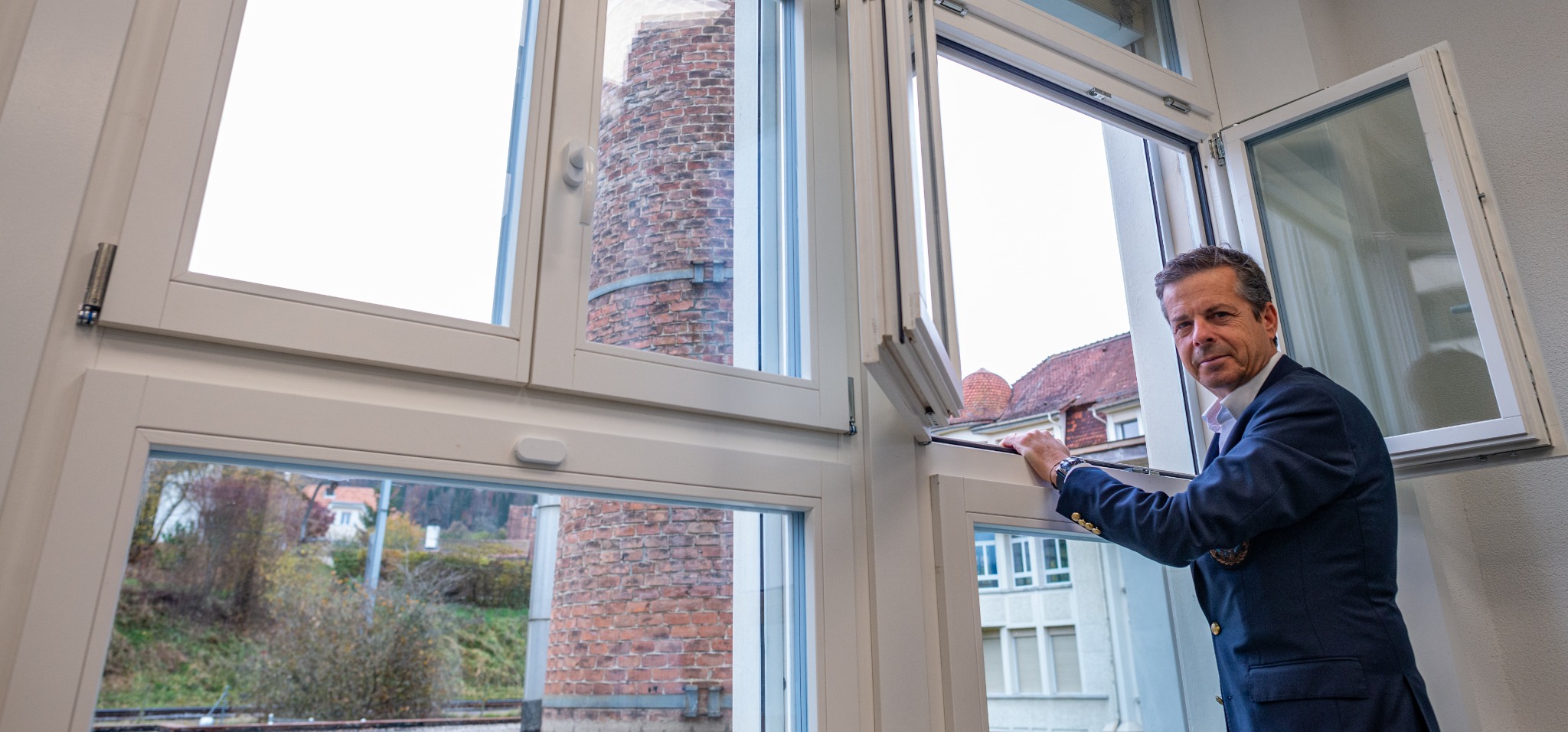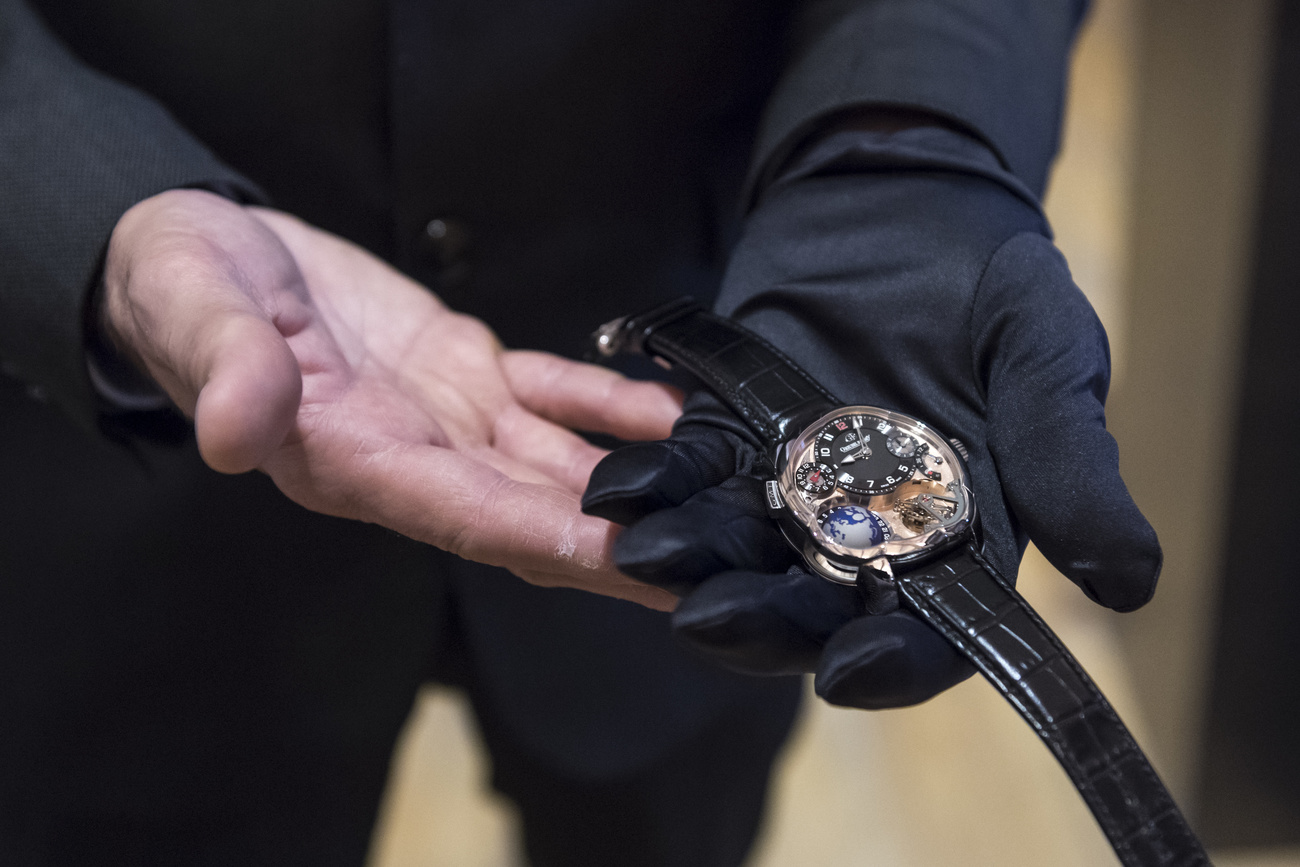
What makes a Swiss ‘private-label’ watch company tick

In watchmaking – much more than in other industries – it is customary not to reveal the names of corporate clients and suppliers. Roventa-Henex has based its entire business model on discretion and works completely anonymously for brands and individuals.
Outside the world of watchmaking, very few people have heard of Roventa-Henex. Yet this company based in Tavannes in the Jura mountains in western Switzerland is a key player in the Swiss watch industry. The watch brands it produces are recognised worldwide.
Roventa-Henex is what is known as a “private-label” company. It produces watches for other companies, which then market these products under their own brand names. This arrangement strictly prohibits Roventa-Henex from revealing the identity of its corporate clients.
Founded in 1959, Roventa-Henex employs 90 people at its headquarters in Tavannes and ten people in a subsidiary in Hong Kong. SWI swissinfo.ch spoke with Jérôme Biard, CEO of Roventa-Henex since April 2019, about the company’s business model.
Jérôme Biard is from Lausanne, western Switzerland. He received a bachelor’s degree in management in 1986 from Lausanne’s EHL Hospitality Business School. He then began a long career in watchmaking and has worked at Vacheron Constantin, Cartier, and Girard-Perregaux.
From June 2017 to March 2019, Biard was CEO of Corum and of Eterna, two watch brands purchased by the Chinese group Citychamp in 2013. In April 2019, Biard was named CEO of Roventa-Henex. In 2022, he acquired a 30% stake in the company.
SWI swissinfo.ch: What services do you offer your clients?
Jérôme Biard: Our services range from initial design to final testing. This includes technical development, prototypes, and industrialisation [process]. Sometimes we also take care of logistics. But we’re never involved in distribution and sales.
As to the manufacturing of components, we always delegate this to an extensive network of Swiss and Asian sub-contractors. We consistently and closely monitor the quality of this production, notably through our subsidiary in Hong Kong.
All of our watches meet the legal criteria for the “Swiss Made” label. Our annual capacity is over 200,000 watches.
SWI: What type of watches do you work on?
J.B.: The retail prices of our watches vary from CHF400 to CHF50,000 ($465 to $58,064), but the majority fall between CHF1,000 and CHF5,000. As we are primarily a design firm and don’t own our own [component] production facility, we’re able to be competitive across this wide price range.
SWI: Your websiteExternal link is exclusively in English. Does this mean you target only international clients?
J.B.: It’s more about controlling our costs, since our margins are not as big as those of the brands. Nonetheless, our simple presence online generates about five inquiries a day.
At first, we spent a lot of time working on ideas with these potential clients. We later learned to sort all of these requests right away and to concentrate on the most promising ones, especially those based on long-term projects.
We now prefer to draw up attractive concepts ourselves for large potential clients and to offer them proactively.
SWI: Discretion is one of your cardinal values, and you never reveal the names of your corporate clients. Nonetheless, what types of clients do you have?
J.B.: We have six types of clients. In order of decreasing importance: major watch brands, large non-watch groups, watch distributors and retailers, “dreamers”, “one-time dreamers”, and start-ups.
The “dreamers” are wealthy individuals who wish to launch a lasting watch brand. The “one-time dreamers” don’t have a long-term strategy and want a single design. The start-ups are dreamers without means.

SWI: Do you have a catalogue of pre-existing watch models?
J.B.: Absolutely not. Our projects generally start with a blank page. Our first step is often to help our clients express their wishes.
SWI: What is the volume of a typical order?
J.B.: From several hundred to several thousand watches. But for a client to be profitable for us, it’s important that its orders are repeated. Delivering a single small order is especially costly and generally not very profitable because of the investment required to set up a production line.
SWI: In many industries, suppliers and private-label companies are free to name their clients. Why is this not the case in watchmaking?
J.B.: It has to be said that the watchmaking industry is different and much more secretive. Roventa-Henex’s job is to create [watches] that everyone believes are made by the watch brands. For this same reason, the brands hardly ever reveal the identities of their suppliers and the private-label companies. Naturally we are not invited to product launches in front of the press. It is therefore important that our project and product managers don’t have an oversized ego.
SWI: Some companies that used to work in private label have ended up launching their own brands. Maurice Lacroix is one example. Are you considering this?
J.B.: We’re not considering that kind of development, mainly so that we don’t end up competing with our own clients. Moreover, to maintain our complete freedom in choosing our suppliers, we have no intention of acquiring manufacturers of watch components. We remain focused on our core business, while staying open to applying our technical expertise in non-watchmaking industries, such as medical devices.

More
Swiss watchmaking: where things stand
SWI: The sales volume of low-end Swiss watches is on a downward trend. Is this a problem for your component suppliers?
J.B.: It’s a serious problem. In 20 years, low-end Swiss watchmaking has lost a third of its volume, and this is very worrying. To mitigate these difficulties, I think component manufacturers could do more to adapt their production facilities to remain competitive even for small orders.
SWI: At the top end of the market, Swiss watches are largely made by hand. Would it be possible to increase the automation of their manufacture?
J.B.: Not really because the process is highly complex and the [production] volume is small. In addition, the craft of highly qualified artisans is precisely what customers are willing to pay considerable sums for.
SWI: The American company Fossil makes watches for a number of clothing brands. Is Fossil your primary competitor?
J.B.: Fossil does indeed work for many clothing brands, but their business model is very different from ours. Since this American company has its own brand, it has a distribution network, and it makes this network available to its private-label clients.
Our main competitors are the watch brands that prefer to do everything in-house instead of sub-contracting a large part of the work to us.
SWI: Exports of Swiss watches are at record levels. How is Roventa-Henex doing?
J.B.: The year 2023 will also be a record one for our company, with a 40% increase in sales compared to 2022, which was already a good year. However, I know that our clients’ inventory levels are high, so I expect our business volume to slow down in 2024.
Edited by Samuel Jaberg. Translated from French by Katherine Bidwell/gw

More
‘The arrival of foreign capital has not harmed Swiss watchmaking’

In compliance with the JTI standards
More: SWI swissinfo.ch certified by the Journalism Trust Initiative





























You can find an overview of ongoing debates with our journalists here . Please join us!
If you want to start a conversation about a topic raised in this article or want to report factual errors, email us at english@swissinfo.ch.